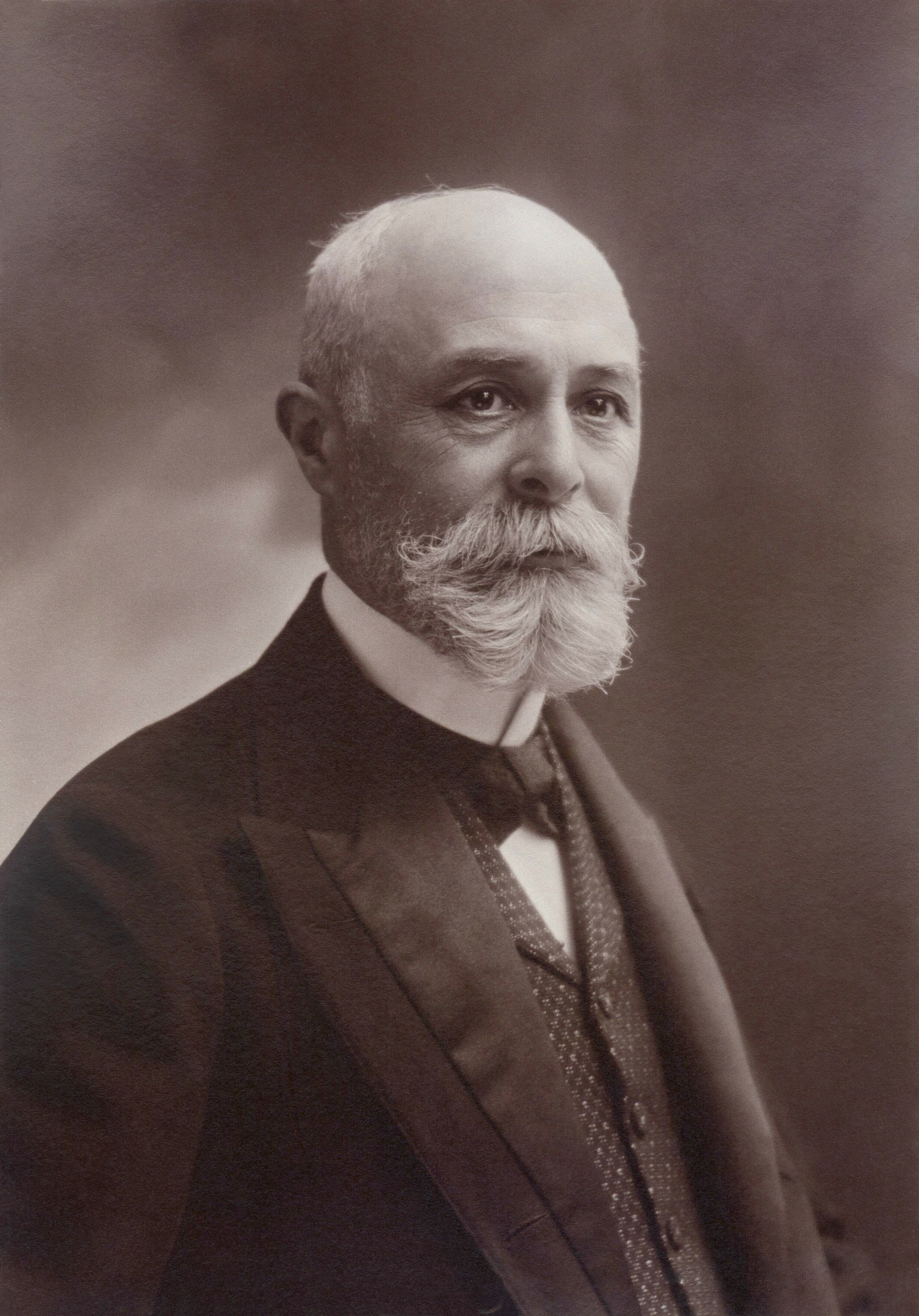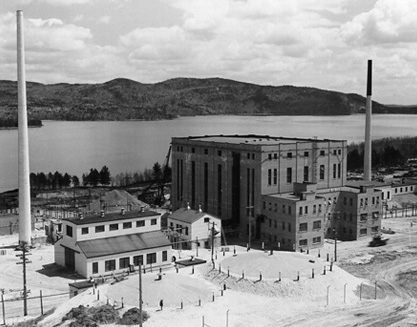|
I Ragazzi Di Via Panisperna
' (''Via Panisperna Boys'') is an Italian movie by director Gianni Amelio, telling the enthusiasms, fears, joys and disappointments of the (private and professional) life of a well-known group of young men fond of physics and mathematics, who just made history as the ''Via Panisperna boys''. The movie derives from a 3-hour long TV movie, which was produced and broadcast in two parts by RAI in 1990. Plot The story is inspired by a real life fact and set in the 1930s when, at the Institute of Physics of Via Panisperna, in Rome, physicist Enrico Fermi managed to involve a group of brilliant young students—Emilio, Bruno, Edoardo and Ettore (all of whom became famous scientists)—forming a working group committed to scientific research who would achieve great discoveries in the field of nuclear physics. These young men's lives—full of anxieties as well as enthusiasms—are related with pathos and sensitiveness, mainly looking at their private side, with their youthful energies ... [...More Info...] [...Related Items...] OR: [Wikipedia] [Google] [Baidu] |
Gianni Amelio
Gianni Amelio (born 20 January 1945) is an Italian film director. Early life Amelio was born in San Pietro di Magisano, province of Catanzaro, Calabria. His father moved to Argentina soon after his birth. He spent his youth and adolescence with his mother and his grandmother. The absence of a paternal figures will be a constant in Amelio's future works. During his university studies of philosophy in Messina, Amelio got interested in cinema, writing as film critic for a local magazine. In 1965 he moved to Rome, where he worked as operator and assistant director for figures such as Liliana Cavani and Vittorio De Seta. He also worked for television, directing documentaries and advertisements. Amelio's first important work is the TV film '' La città del sole'', directed in 1973 for RAI TV and inspired to Tommaso Campanella's work. This was followed by '' Bertolucci secondo il cinema'' (1976) a documentary about ''1900'' shooting, and the thriller '' Effetti speciali''. Two years l ... [...More Info...] [...Related Items...] OR: [Wikipedia] [Google] [Baidu] |
Via Panisperna Boys
Via Panisperna boys (Italian: ''I ragazzi di Via Panisperna'') is the name given to a group of young Italian scientists led by Enrico Fermi, who worked at the Royal Physics Institute of the University of Rome La Sapienza. In 1934 they made the famous discovery of slow neutrons, which later made possible the nuclear reactor and then the construction of the first atomic bomb. The nickname of the group comes from the address of the Institute, located in a street of Rione Monti in the city centre, which got its name from a nearby monastery, San Lorenzo in Panisperna. The other members of the group were Edoardo Amaldi, Oscar D'Agostino, Ettore Majorana, Bruno Pontecorvo, Franco Rasetti and Emilio Segrè. All were physicists, except for D'Agostino, who was a chemist. The growth of the group The group grew under the supervision of the physicist, minister, senator and director of the Institute of Physics Orso Mario Corbino. Corbino recognized the qualities of Enrico Fermi and led ... [...More Info...] [...Related Items...] OR: [Wikipedia] [Google] [Baidu] |
Laura Morante
Laura Morante (born 21 August 1956) is an Italian film actress. Life and career Morante was born in Santa Fiora, province of Grosseto (Tuscany), the daughter of lawyer and playwright Marcello Morante, who was the son of Irma (née Poggibonsi) (a schoolteacher of Jewish descent) and Francesco Lo Monaco, from Sicily, and brother of the novelist Elsa Morante. Laura's mother is Maria Bona Palazzeschi. Originally a dancer, Morante started her acting career on stage at 18 years old, in the theatrical company of Carmelo Bene. She made her film debut in ''Oggetti Smarriti'' (''Lost Belongings'')., directed by Giuseppe Bertolucci, whose brother would direct the second film in which Morante would appear, ''La Tragedia di un uomo ridicolo'' (''The Tragedy of a Ridiculous Man''). She eventually had her Breakout role, breakout thanks to Nanni Moretti, who gave her the title role in ''Bianca (1984 film), Bianca''. After her marriage to French actor Georges Claisse, Morante moved to Paris, ... [...More Info...] [...Related Items...] OR: [Wikipedia] [Google] [Baidu] |
Alberto Gimignani
Alberto is the Romance version of the Latinized form (''Albertus'') of Germanic ''Albert''. It is used in Italian, Portuguese and Spanish. The diminutive forms are ''Albertito'' in Spain or ''Albertico'' in some parts of Latin America, Albertino in Italian as well as ''Tuco'' as a hypocorism. It derives from the name Adalberto which in turn derives from '' Athala'' (meaning noble) and ''Berth'' (meaning bright). People * Alberto Aguilar Leiva (born 1984), Spanish footballer * Alberto Airola (born 1970), Italian politician * Alberto Ascari (1918–1955), Italian racing driver * Alberto Baldonado (born 1993), Panamanian baseball player * Alberto Bello (1897–1963), Argentine actor * Alberto Beneduce (1877–1944), Italian scientist and economist * Alberto Bustani Adem (born 1954), Mexican engineer * Alberto Callaspo (born 1983,) baseball player * Alberto Campbell-Staines (born 1993), Australian athlete with an intellectual disability * Alberto Cavalcanti (1897–1982), Braz ... [...More Info...] [...Related Items...] OR: [Wikipedia] [Google] [Baidu] |
Giovanni Romani
Giovanni may refer to: * Giovanni (name), an Italian male given name and surname * Giovanni (meteorology), a Web interface for users to analyze NASA's gridded data * ''Don Giovanni'', a 1787 opera by Wolfgang Amadeus Mozart, based on the legend of Don Juan * Giovanni (Pokémon), boss of Team Rocket in the fictional world of Pokémon * Giovanni (World of Darkness), a group of vampires in ''Vampire: The Masquerade/World of Darkness'' roleplay and video game * "Giovanni", a song by Band-Maid from the 2021 album ''Unseen World'' * ''Giovanni's Island'', a 2014 Japanese anime drama film * ''Giovanni's Room'', a 1956 novel by James Baldwin * Via Giovanni, places in Rome See also * * *Geovani *Giovanni Battista *San Giovanni (other) *San Giovanni Battista (other) San Giovanni Battista is the Italian translation of Saint John the Baptist. It may also refer to: Italian churches * San Giovanni Battista, Highway A11, a church in Florence, Italy * San Giovanni Battista, Pra ... [...More Info...] [...Related Items...] OR: [Wikipedia] [Google] [Baidu] |
Michele Melega
Michele (), is an Italian male given name, akin to the English male name Michael. Michele (pronounced ), is also an English female given name that is derived from the French Michèle. It is a variant spelling of the more common (and identically pronounced) name Michelle. It can also be a surname. Both are ultimately derived from the Latin biblical archangel Michael, original Hebrew name מיכאל, meaning " Who is like God?". Men with the given name Michele *Michele (singer) (born 1944), Italian pop singer * Michele Abruzzo (1904–1996), Italian actor *Michele Alboreto (1956–2001), Italian Grand Prix racing driver *Michele Amari (1806–1889), Italian politician and historian *Michele Andreolo (1912–1981), Italian footballer *Michele Bianchi (1883–1930), Italian journalist and revolutionary *Michele Bravi (born 1994), Italian singer *Michele Cachia (1760–1839), Maltese architect and military engineer *Michele Canini (born 1985), Italian footballer * Michele Dell'Orco ... [...More Info...] [...Related Items...] OR: [Wikipedia] [Google] [Baidu] |
Fascism
Fascism is a far-right, authoritarian, ultra-nationalist political ideology and movement,: "extreme militaristic nationalism, contempt for electoral democracy and political and cultural liberalism, a belief in natural social hierarchy and the rule of elites, and the desire to create a (German: “people’s community”), in which individual interests would be subordinated to the good of the nation" characterized by a dictatorial leader, centralized autocracy, militarism, forcible suppression of opposition, belief in a natural social hierarchy, subordination of individual interests for the perceived good of the nation and race, and strong regimentation of society and the economy. Fascism rose to prominence in early 20th-century Europe. The first fascist movements emerged in Italy during World War I, before spreading to other European countries, most notably Germany. Fascism also had adherents outside of Europe. Opposed to anarchism, democracy, pluralism, liberalism ... [...More Info...] [...Related Items...] OR: [Wikipedia] [Google] [Baidu] |
Nuclear Physics
Nuclear physics is the field of physics that studies atomic nuclei and their constituents and interactions, in addition to the study of other forms of nuclear matter. Nuclear physics should not be confused with atomic physics, which studies the atom as a whole, including its electrons. Discoveries in nuclear physics have led to applications in many fields. This includes nuclear power, nuclear weapons, nuclear medicine and magnetic resonance imaging, industrial and agricultural isotopes, ion implantation in materials engineering, and radiocarbon dating in geology and archaeology. Such applications are studied in the field of nuclear engineering. Particle physics evolved out of nuclear physics and the two fields are typically taught in close association. Nuclear astrophysics, the application of nuclear physics to astrophysics, is crucial in explaining the inner workings of stars and the origin of the chemical elements. History The history of nuclear physics as a discipl ... [...More Info...] [...Related Items...] OR: [Wikipedia] [Google] [Baidu] |
Ettore Majorana
Ettore Majorana (,, uploaded 19 April 2013, retrieved 14 December 2019 ; born on 5 August 1906 – possibly dying after 1959) was an Italian theoretical physicist who worked on neutrino masses. On 25 March 1938, he disappeared under mysterious circumstances after purchasing a ticket to travel by ship from Palermo to Naples. The Majorana equation and Majorana fermions are named after him. In 2006, the Majorana Prize was established in his memory. Life and work In 1938, Enrico Fermi was quoted as saying about Majorana: "There are several categories of scientists in the world; those of second or third rank do their best but never get very far. Then there is the first rank, those who make important discoveries, fundamental to scientific progress. But then there are the geniuses, like Galilei and Newton. Majorana was one of these." Gifted in mathematics Majorana was born in Catania, Sicily. Mathematically gifted, he was very young when he joined Enrico Fermi's team in Rome a ... [...More Info...] [...Related Items...] OR: [Wikipedia] [Google] [Baidu] |
Edoardo Amaldi
Edoardo Amaldi (5 September 1908 – 5 December 1989) was an Italian physicist. He coined the term "neutrino" in conversations with Enrico Fermi distinguishing it from the heavier "neutron". He has been described as "one of the leading nuclear physicists of the twentieth century." He was involved in the anti-nuclear peace movement. Life and career Amaldi was born in Carpaneto Piacentino, the son of Ugo Amaldi, professor of mathematics at the University of Padua, and Luisa Basini. Amaldi graduated under the supervision of Enrico Fermi and was his main collaborator until 1938, when Fermi left Italy for the United States. In 1939, Amaldi was drafted into the Royal Italian Army and returned to physics in 1941. After WWII, Amaldi held the chair of "General Physics" at the Sapienza University of Rome, rebuilt the post-Fermi school of physics, and was the co-founder of the Italian National Institute for Nuclear Physics and of ESRO. He was the general secretary of CERN at its ... [...More Info...] [...Related Items...] OR: [Wikipedia] [Google] [Baidu] |
Bruno Pontecorvo
Bruno Pontecorvo (; russian: Бру́но Макси́мович Понтеко́рво, ''Bruno Maksimovich Pontecorvo''; 22 August 1913 – 24 September 1993) was an Italian and Soviet nuclear physicist, an early assistant of Enrico Fermi and the author of numerous studies in high energy physics, especially on neutrinos. A convinced communist, he defected to the Soviet Union in 1950, where he continued his research on the decay of the muon and on neutrinos. The prestigious Pontecorvo Prize was instituted in his memory in 1995. The fourth of eight children of a wealthy Jewish-Italian family, Pontecorvo studied physics at the University of Rome ''La Sapienza'', under Fermi, becoming the youngest of his Via Panisperna boys. In 1934 he participated in Fermi's famous experiment showing the properties of slow neutrons that led the way to the discovery of nuclear fission. He moved to Paris in 1934, where he conducted research under Irène and Frédéric Joliot-Curie. Influence ... [...More Info...] [...Related Items...] OR: [Wikipedia] [Google] [Baidu] |


.jpg)



